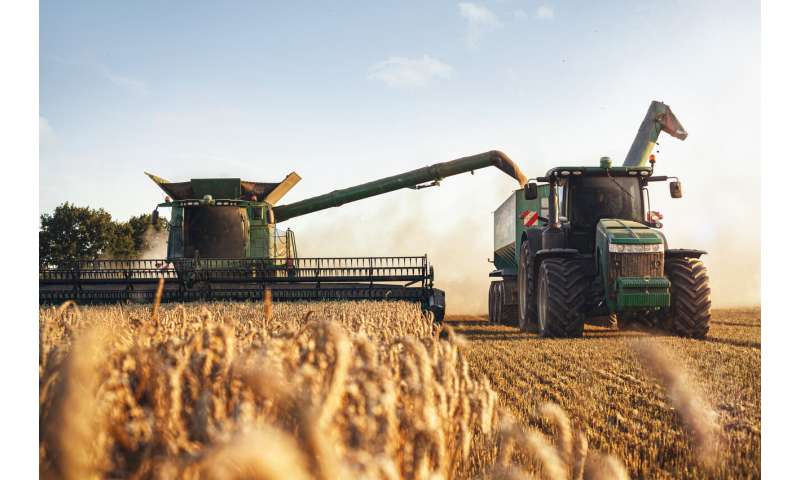Russian Scientists Introduce Digital Technologies into Agriculture

Scientists from South Ural State University studied the use of Enterprise Resource Planning systems (special software packages for implementing the organizational strategy of production management) in order to identify possible problems and prospects in improving the efficiency of agricultural enterprises using IT. The experience of digital technologies used in Russian and foreign agricultural enterprises was studied and analyzed. The study was published in the highly ranked scientific journal Entrepreneurship and Sustainability Issues.
Agricultural modernization
The adoption of corporate application software by agricultural enterprises attracts increasing attention of entrepreneurs and scientists. Doctor of Economics, associate professor Natalia Zyablitskaya, head of the Department of Economics, Management and Law at Nizhnevartovsk branch of South Ural State University, together with her colleagues from Moscow and Yekaterinburg, studied the possibilities of improving the efficiency and management of agricultural enterprises using a special computer program that may also help to rationally distribute finance and resources thus reducing costs.
"At present, a strategy for the scientific and technological development of the Russian Federation until 2030 has been adopted. One of its priorities is the use of smart manufacturing technologies and robotic systems in the next 10-15 years. These technologies include enterprise resource planning (ERP) systems. The main idea is that ERP- systems will significantly increase the efficiency of agricultural enterprises," Natalia Zyablitskaya says.
At the first stage, scientists analyzed a variety of articles in scientific journals and made a survey of managers and specialists of 55 companies in the agricultural sector of the Urals. At the final stage, SWOT analysis was implemented to determine the prospects of using ERP systems in the industry.
At the final stage of the study, it was found that the ERP-systems show good results in agriculture; they can improve performance, reduce costs, increase cost control. These systems help to improve the quality of management decisions in the field of agricultural production and can serve as the basis for precision agriculture.
Limitations and challenges of the agricultural sector
The study helps to summarize the strengths and weaknesses to outline the possibilities and potential difficulties of using these systems in agriculture. The low rate of such technologies implementation is associated with a number of problems, including a lack of qualified personnel and insufficient awareness of the managers and specialists of agricultural enterprises.
"The main limitations are the low qualifications of the staff, the lack of free funds for the implementation of these systems, poor development or lack of infrastructure, the difficulty of setting up and adapting ERP systems to agricultural production. We can note the distrust of the agricultural organizations' owners in high-tech solutions, their poor knowledge of these systems, the complexity of the operation, and the insufficient level of subsidizing the implementation of ERP systems," the scientists acknowledge.
The results of the study can be used by executive authorities in developing programs for innovations in agriculture and technical modernization of the industry.
More information:
DOI 10.9770/jesi.2020.7.3(27)
Provided by South Ural State University